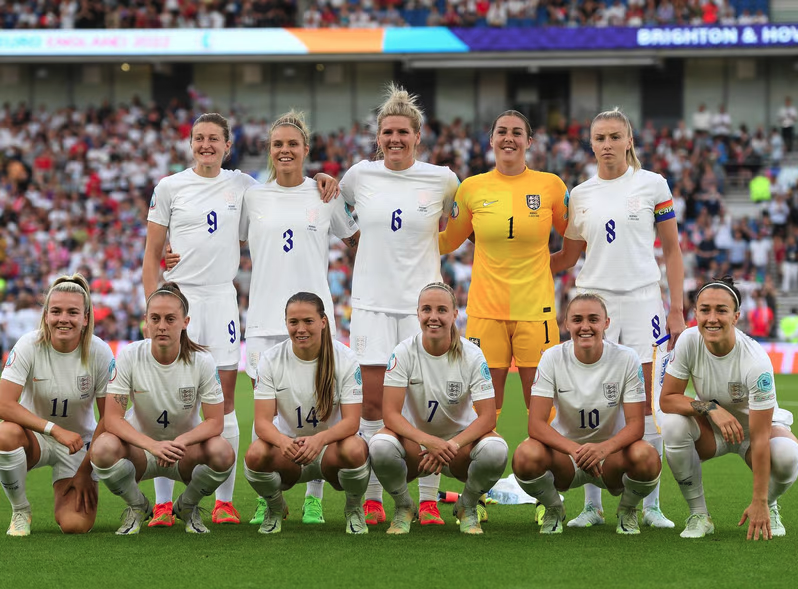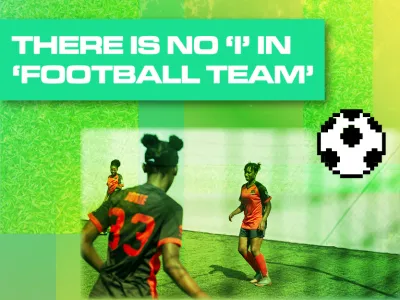
What’s Next For Women’s Football?
Include this article in your Skills Builder Journal. It could help you develop... 

Over the summer, Writers’ Club member and football fan Beth wrote about why the Euros were so important and what she loved about the tournament. Now, she’s back to let us know what’s next for women’s football and how to be a part of it!
The recent success of the Lionesses at the Euros has sparked a new movement in women's football, and for many people, they feel as if it’s finally entering a new era. In the past decade, money and resources have been introduced to help build strong foundations and structures so that the game can grow and flourish. Things are certainly looking positive, but there are still many issues; pay gaps are huge, discrimination is very much present, sexual harrasment reports are common and there are still issues in participation.

It's no secret that the pay gap between men’s football and women’s football is huge. Women who train just as hard as the men and put in just as much commitment and dedication, earn significantly less than the men. A 2017 report showed that 88% of players in the Women's Super League earn less than £18,000 a year, whereas an average male player in the Premier League would earn £50,00 a week. This gap is yet again highlighted in the difference in prize money between the FA cup winners. When Chelsea won the FA cup in the 2020-21 season, they received a prize fund of £25,000, just over 1% of the £1.8 million prize fund that was awarded to the men’s FA cup winners.
And it's not just the players who suffer in the game either. Referees in the WSL earn on average £4,000 a year, whereas male referees in the Premier League earn an average of £43,00, with extra games taking their salary close to six figures. This means referees in the WSL have to work other jobs just to earn a basic living. However, progress is being made to bridge this gap, and in recent years WSL player salaries are thought to have increased to an average of around £30,000-£40,000. Hopefully, in the coming years the support and the growing interest will manifest into higher salaries for both players, match officials and support staff alike.
Issues of discrimination are still embedded into the women’s game too. Recently, people became very aware of the lack of diversity in the England squad at the Euros. In England's 8-0 win against Norway, all of the starting players, plus the five substitutes, were white. England's manager Sarina Wiegman recognised this issue and said, “I hope we get more diversity in the national team. For now, I just pick the best players”. However, the FA has plans to improve pathways for Black, Asian and ethnic minorities so that there is equal access of opportunity into professional football.

I believe things are looking up for the game. Participation numbers, especially at grassroot levels have been up, thanks to the investments put into it. The FA reports that participation doubled in three years, and in 2019 they announced over 2.63 million women aged 16 and over were taking part in the game. A new generation of children can now grow up with opportunities and equality that the generation before never experienced. Many organisations are committed to helping the game develop even more and are setting up new schemes and pathways all the time. Karen Carney is heading a review into women's football in England that “aims to ensure the sustainable growth of the women's game at an elite and grassroots level and build on the Lionesses’ success in winning the European title earlier this summer”. Hopefully this will help to grow women’s football into a successful, flourishing game open for all.

If you want to get involved in women’s football, you can do this in many ways, such as watching and sharing the games and supporting local teams! Often entry to local matches is cheaper and more affordable than higher levels, yet the game is just as passionate and exciting and you get a real sense of team spirit and belonging.. And, if you have a passion for the game yourself, don't be afraid to sign up for a local team. Although it can be daunting at first, it can lead to so many new opportunities, friends, and life skills that you can't get anywhere else.
Steps are being taken all the time to progress women's football and even though sometimes they seem small and insignificant, they all lead towards a better future. Women's football is entering a new and exciting era full of possibility and I encourage you to be a part of it in any way possible.




